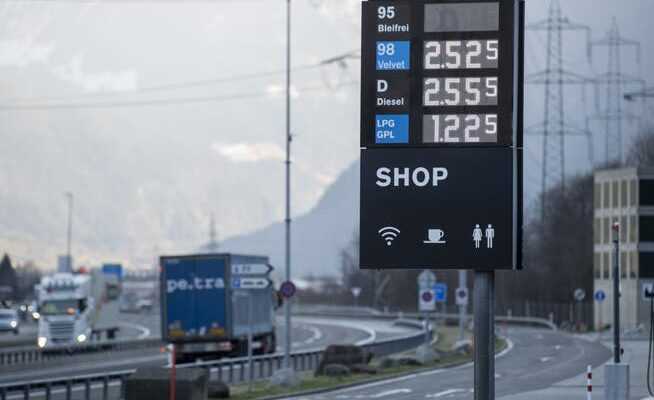In Switzerland, too, prices are rising significantly. Inflation rose to 2.4 percent in March. This means that inflation is well below the level in other countries.
In Switzerland, too, petrol and diesel have become significantly more expensive.
Inflation rates are rising to record highs in Europe and the USA. In Germany, for example, it climbed to 7.3 percent in March. This is the highest rate of inflation in over 40 years. In the US, the inflation rate was as high as 7.9 percent in February.
And in Switzerland? Life is also becoming more expensive – driven by energy prices as elsewhere. Nevertheless, Switzerland remains a special case. Inflation is increasing, but only to 2.4 percent (compared to the previous year), as the Federal Statistical Office announced on Friday.
The national index of consumer prices increased by 0.6 percent in March 2022 compared to the previous month and reached the level of 103.0 points (December 2020 = 100). The increase of 0.6 percent in comparison was due in large part to higher fuel prices. The prices for heating oil have also increased, as have those for air transport.
The drivers of inflation are primarily imported goods, which were 5.5 percent more expensive a year ago. In the case of domestic goods, on the other hand, annual inflation was only 1.4 percent. On the other hand, prices for non-hotel accommodation have fallen, as have rents for private transport.
The fact that inflation is rising far less in Switzerland than in other countries has a lot to do with the strong Swiss franc. In the past few months, it has increased significantly in relation to the euro, the currency of our most important trading partner. That makes our imports cheaper across the board. And imported goods are the main drivers of inflation.
The second important reason for the low price pressure in Switzerland is that energy has a much lower weight in the shopping basket here than in the rest of Europe or in the USA. With us, energy makes up just over 5 percent in the shopping basket, in Europe almost 10 percent.
